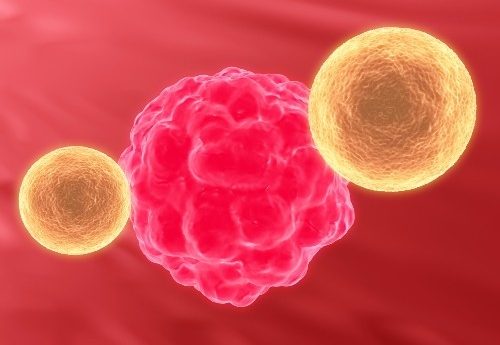Novel stem cell therapy targets stiff cancer tumors using mechanoresponsive stem cells

Engineered mechanoresponsive stem cells can act as vehicles for cancer drug delivery avoiding some of the toxic side effects of chemotherapy. The targeted therapy uses the increased matrix stiffness of tumors to distinguish between metastatic and normal tissues.
Scientists at the University of California, Irvine (CA, USA) programmed human bone marrow stem cells to selectively home to and target cancer metastases in response to specific mechanical cues. A study, published in Science Translational Medicine, shows the engineered stem cells deliver therapeutics which effectively killed cancer cells in a metastatic breast cancer mouse model. Utilizing this mechanoresponsive cell system reduces the negative side effects associated with chemotherapy as well as harmful effects of mesenchymal stem cells (MSCs) which constitutively express therapeutics in non-targeted therapy.
In efforts to improve the treatment of cancer metastases, Weian Zhao, Assistant Professor, UC Irvine, and colleagues utilized a mechanosensitive promotor-driven MSC-based vector which is specifically activated by specific cancer-associated mechano-cues. The cells accumulated in tumors and delivered a two-part cancer therapy: the enzyme cytosine deaminase was first released followed by an inactive chemotherapy drug, 5-fluorocytosine, which is only activated by tumor site enzymes. This resulted in no off-target damage. This is a significant result as Zhao and colleagues hope to provide an alternative to chemotherapy which can harm healthy cells as well as cancer cells.
The team has so far focused on metastatic cancer, which is the cause of 90% of cancer death. In this study a metastatic breast cancer mouse model was used but Zhao comments that the technology should be widely applicable: “However, the technology will be applicable to other metastases as well, because many solid tumors have the hallmark of being stiffer than normal tissue. This is why our system is innovative and powerful, as we don’t have to spend the time to identify and develop a new genetic or protein marker for every kind of cancer.”
The next step for Zhao and team is to move from preclinical animal studies to human studies. The preclinical animal studies showed the treatment is safe and effective but the transition to human studies will be the next challenge. As well as this, they will look to expand this platform technology for the treatment of other diseases with abnormal tissue stiffness such as fibrotic diseases and diabetes.
Sources: Liu L, Zhang SX, Liao W et al. Mechanoresponsive stem cells to target cancer metastases through biophysical cues. Sci. Transl. Med. 400(9) (2017); https://news.uci.edu/2017/07/26/uci-stem-cell-therapy-attacks-cancer-by-targeting-unique-tissue-stiffness/